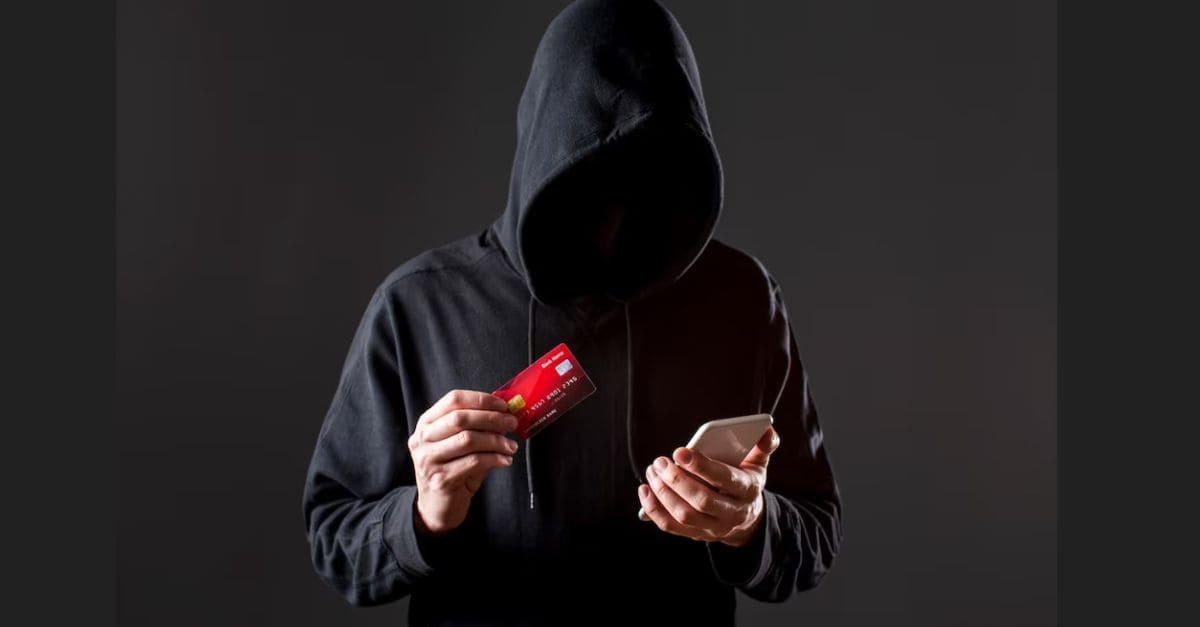
Credit card abuse is a growing concern worldwide, affecting consumers and financial institutions. With the increasing shift to digital payments and online transactions, the risk of credit card fraud and abuse has never been higher. According to recent data, in total, fraudulent card payments reached 32 billion U.S. dollars in the United States alone, and credit card fraud in the UK reached 389,845 reports in 2021, with people aged 20-39 being the most vulnerable. Fraudulent credit card applications surged by 17% during the early months of the COVID-19 pandemic, a trend that has persisted.
In this article, we will explore credit card abuse, the different types of fraud, and how criminals exploit vulnerabilities. We’ll also discuss common methods like skimming, hacking, and phishing and offer tips on how to protect yourself from becoming a victim.
Table of Contents
What is Credit Card Abuse?
Credit card abuse refers to the unauthorized use of a credit or debit card to make purchases or withdraw funds. This can happen in several ways, often without the cardholder’s knowledge. While traditional credit card fraud involves physical theft, today’s fraudsters often obtain card details electronically, making credit card abuse more widespread.
In the past, credit card abuse was associated with stolen cards, but now fraudsters can steal card information online or through other electronic means. This shift has made it easier for criminals to commit fraud without ever handling a physical card.
Types of Credit Card Fraud
Credit card fraud can take many forms, but it generally falls into two main categories:
- Application Fraud: This occurs when a fraudster uses stolen or bought personal information to open a new credit card account in the victim’s name. Criminals may acquire this data through data breaches or the dark web.
- Account Takeover Fraud: In this type of fraud, a criminal takes control of an existing credit card account by stealing personal identifying information (PII). They can then change account details, make purchases, or transfer funds.
Both types of fraud can be devastating for individuals, leading to financial loss and damaged credit scores. But there are also more specific methods of stealing credit card information, including skimming, hacking, and phishing.
Common Methods of Credit Card Abuse
1. Skimming
Skimming is one of the most common ways criminals steal credit card information. This involves using a small device (called a skimmer) that attaches to card readers, such as those found on ATMs, gas pumps, or point-of-sale (POS) terminals. The skimmer collects the data stored on the magnetic stripe of a credit card without the cardholder’s knowledge.
Once the thief has obtained the card information, they can clone the card onto a new one and use it to make unauthorized transactions. Skimming can happen almost anywhere a credit card is used, but common locations include:
- ATMs
- Restaurants and fast food drive-thru windows
- Gas station pumps
How to Protect Yourself from Skimming:
- Inspect card readers before using them for any unusual attachments or modifications.
- Use ATMs located inside bank branches where skimmers are less likely to be installed.
- Be cautious when using your card in public areas, especially if you suspect the device has been tampered with.
2. Hacking
Hacking involves a criminal gaining unauthorized access to a merchant’s computer system or point-of-sale (POS) terminals to steal customer credit card information. Merchants with outdated security systems or vulnerable payment software are particularly at risk. Hackers often target large databases to steal thousands of credit card details at once.
Data breaches have become increasingly common, especially with the rise of online shopping. When you make online purchases, it’s crucial to ensure that the website you’re using is secure.
How to Protect Yourself from Hacking:
- Only shop on websites that use HTTPS (secure sockets layer encryption) to protect your data.
- Avoid saving your credit card information on websites.
- Use credit cards with fraud protection and transaction monitoring features.
- Keep your devices and software up to date with the latest security patches.
3. Phishing
Phishing is a method of credit card abuse that involves tricking individuals into revealing sensitive information, such as credit card numbers, usernames, and passwords. Fraudsters often send fake emails or text messages that appear to come from legitimate sources, such as banks, retailers, or government agencies.
These messages usually contain urgent warnings or enticing offers that prompt the victim to click on links or open attachments. Once clicked, these links can either lead to fraudulent websites that ask for credit card details or install malicious software (such as a Trojan virus) that logs keystrokes to capture sensitive information.
How to Protect Yourself from Phishing:
- Never open suspicious emails or click on links from unknown senders.
- Verify the authenticity of emails or messages by contacting the company directly.
- Use up-to-date antivirus software and avoid downloading files or attachments from unknown sources.
- Look out for signs of phishing, such as misspellings, unprofessional language, or requests for sensitive information.
The Impact of Credit Card Abuse
Credit card abuse not only affects individuals but also financial institutions. In the U.S., financial organizations must comply with the Fair Credit Billing Act, which requires them to refund customers for unauthorized charges over $50. However, many credit card companies go further by offering zero-liability policies for fraud-related charges.
Despite these protections, credit card fraud can still lead to significant financial losses for both consumers and businesses. The rise in online fraud, especially during the COVID-19 pandemic, has made it even harder for organizations to track and prevent fraud in real time. The costs of credit card fraud also extend beyond monetary losses to include damaged reputations, customer trust, and brand integrity.
Additional Impacts on Financial Institutions:
- Increased operational costs for fraud detection and prevention.
- The risk of customer complaints and potential legal action.
- Loss of customer confidence, which can lead to business decline.
How to Prevent Credit Card Abuse
As credit card abuse continues to evolve, both consumers and financial organizations must take proactive steps to prevent fraud. Here are some essential measures to protect yourself:
For Consumers:
- Use Strong Authentication: Enable multi-factor authentication (MFA) on accounts to add an extra layer of security.
- Monitor Statements: Regularly check your credit card statements for unauthorized transactions.
- Secure Your Devices: Ensure your computer and mobile devices have up-to-date antivirus software and firewalls.
- Avoid Public Wi-Fi for Transactions: Public Wi-Fi networks are vulnerable to hacking and should be avoided for financial transactions.
For Financial Institutions:
- Invest in Fraud Detection Tools: Implement credit card fraud detection tools (machine learning (ML) and artificial intelligence (AI)) to identify suspicious transactions in real time.
- Educate Customers: Offer resources and advice to help customers protect their credit card information and recognize potential fraud.
- Use Secure Payment Systems: Upgrade POS systems and implement chip and PIN technology to minimize risks.
Resources for Victims of Credit Card Fraud
If you’ve fallen victim to credit card abuse or financial fraud, there are resources available to help you through the recovery process.
- Federal Trade Commission (FTC): The FTC offers resources and guidance on dealing with identity theft and reporting fraud. Visit their website at www.ftc.gov to access valuable information and file a complaint.
- Identity Theft Resource Center (ITRC): The ITRC provides free assistance to victims of identity theft. They offer a toll-free hotline and resources to help you navigate recovery. Visit their website at www.idtheftcenter.org for more information.
- Local law enforcement agencies: Contact your local police department or sheriff’s office for guidance on reporting credit card abuse and financial fraud. They can provide you with important information specific to your area.
Conclusion
Credit card abuse, including methods such as skimming, hacking, and phishing, continues to be a serious threat to consumers and businesses alike. As fraudsters develop new tactics, both individuals and financial institutions need to stay vigilant and adopt proactive measures to protect sensitive information. By understanding the risks and taking steps to safeguard against credit card abuse, we can reduce the likelihood of falling victim to fraud.
FAQs: What is Credit Card Abuse? A Guide to Skimming, Hacking, and Phishing
How does credit card abuse happen?
Credit card abuse can occur in several ways, including physical theft of a credit card, online hacking or phishing scams, and obtaining someone’s personal information through identity theft. Sometimes, individuals may also willingly give their credit card information to others who use it for unauthorized purchases.
What should I do if I suspect credit card abuse?
If you suspect credit card abuse, it is important to act quickly. Contact your credit card company or bank immediately to report any unauthorized charges or suspicious activity on your account. They will be able to freeze your account and investigate the matter further.
How can I protect myself from credit card abuse?
You can take several steps to protect yourself from credit card abuse. These include:
- Keeping your credit cards and personal information secure at all times
- Monitoring your credit card statements regularly for any unauthorized charges
- Shredding or safely disposing of any documents containing your personal information
- Be cautious when sharing your credit card information online and on secure websites.
What are the consequences of credit card abuse?
Credit card abuse is a serious crime that can have severe consequences. This can include fines, imprisonment, and a damaged credit score. In addition, victims of credit card abuse may have to deal with the hassle of disputing charges and restoring their credit.






